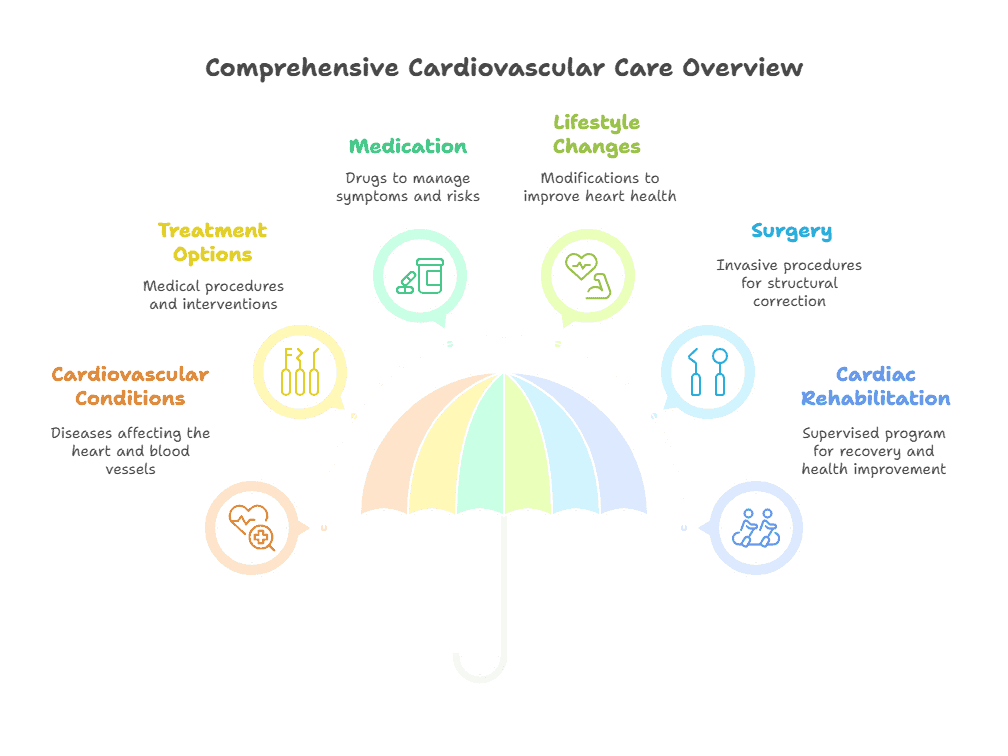Cardiovascular diseases are among the leading causes of death worldwide, affecting millions of people each year. These conditions, which include heart disease, stroke, and high blood pressure, can have serious consequences if left untreated. Fortunately, there are a variety of treatment options available to manage and even reverse the effects of cardiovascular conditions.
Lifestyle Changes
One of the first lines of defense against cardiovascular diseases is making healthy lifestyle choices. This includes maintaining a balanced diet low in saturated fats and cholesterol, engaging in regular exercise, and avoiding tobacco use. These simple changes can have a significant impact on reducing the risk of heart disease and other cardiovascular conditions.
Medications
In some cases, medications may be prescribed to help manage cardiovascular conditions. These can include blood pressure-lowering medications, cholesterol-lowering drugs, and blood thinners. It is important to follow your healthcare provider’s instructions carefully when taking these medications to ensure their effectiveness and minimize potential side effects.
Interventional Procedures
For more severe cases of cardiovascular disease, interventional procedures may be necessary. These can include angioplasty, stent placement, or bypass surgery to restore blood flow to the heart. These procedures are often performed by cardiologists and can help improve symptoms and prevent further complications.
Cardiac Rehabilitation
After undergoing treatment for a cardiovascular condition, cardiac rehabilitation may be recommended to help improve overall heart health and reduce the risk of future problems. This program typically includes exercise training, education on heart-healthy living, and counseling to support emotional well-being.
Device Therapy
In some cases, devices such as pacemakers or implantable cardioverter-defibrillators (ICDs) may be implanted to help regulate the heart’s rhythm and prevent sudden cardiac arrest. These devices can be life-saving for individuals with certain types of cardiovascular conditions.
Summary
Overall, there are a variety of treatment options available for managing cardiovascular conditions, ranging from lifestyle changes to medications, interventional procedures, cardiac rehabilitation, and device therapy. By working closely with your healthcare provider and following their recommendations, you can effectively manage your condition and improve your heart health.
Key points covered in this introduction include the importance of lifestyle changes, the use of medications, interventional procedures, cardiac rehabilitation, and device therapy in the treatment of cardiovascular conditions.
Key Takeaways:
- There are various treatment options available for cardiovascular conditions, including lifestyle changes, medications, and surgical interventions.
- Lifestyle changes such as adopting a healthy diet, regular exercise, and quitting smoking can help prevent and manage cardiovascular conditions.
- Medications commonly used to treat cardiovascular conditions include blood pressure medications, cholesterol-lowering drugs, and blood thinners.
- Surgical interventions for cardiovascular conditions may include procedures such as angioplasty, bypass surgery, or heart valve replacement.
- It is important for individuals with cardiovascular conditions to work closely with their healthcare team to develop a treatment plan that best fits their needs and goals.
Key Terms:
- Cardiovascular Conditions: Any disease or disorder that affects the heart and blood vessels.
- Treatment Options: Various medical procedures and interventions used to manage cardiovascular conditions.
- Medication: Drugs prescribed to manage symptoms or reduce the risk of complications associated with cardiovascular conditions.
- Lifestyle Changes: Modifications to diet, exercise, and habits to improve heart health and reduce the risk of cardiovascular conditions.
- Surgery: Invasive procedures performed to correct structural abnormalities or improve blood flow in the cardiovascular system.
- Cardiac Rehabilitation: A supervised program of exercise, education, and support to help patients recover from heart-related conditions and improve overall cardiovascular health.
